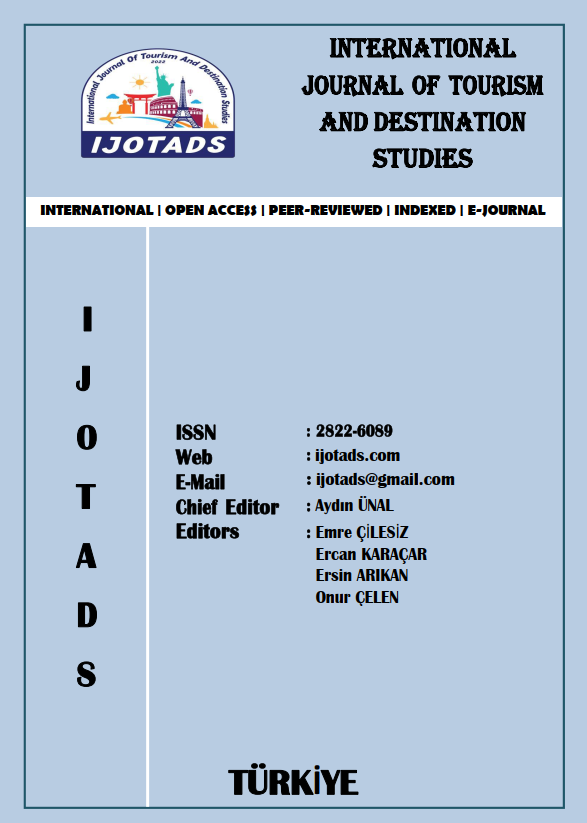Author :
Abstract
Üniversite yurtlarının yemekhanelerinden memnuniyet düzeyi, son yıllarda araştırmacıların üzerinde en çok durduğu konulardan biri haline gelmiştir. Önceki çalışmalar yurt yemekhaneleri ile ilgili eksiklikleri ortaya çıkarsa da, fenomene yönelik çözümler zayıf bir şekilde ifade edildiğinden dolayı, önerilen çözümlerin etkinliği ve uygulanabilirliği hakkında hala tartışmalar bulunmaktadır. Bu araştırma, gastronomi ve mutfak sanatları alanında uygulamalı eğitim alan öğrencilerin yurt yemekhanelerine yönelik algılarını ortaya çıkarmayı amaçlamaktadır. Araştırmacılar tarafından hazırlanan yarı yapılandırılmış anket formu yirmi iki öğrenci tarafından doldurulmuştur. Çalışmanın kurgusu, fenomenoloji deseninde içerik analizi ile oluşturulmuş, verilerin analizinde Maxqda 20 programını kullanılmıştır. Araştırma bulguları “Ürün”, Üretim ve “İhtiyaçlar ve Beklentiler” olmak üzere üç tema altında yedi kategoride yapılandırılmıştır. Bu çalışma, önceki araştırmaları kısmen desteklemekle birlikte, yurt yemekhanelerinin geliştirilmesine yönelik önerilerde verilen çözümlerin rasyonel düşünmeye uygun olduğunu ortaya koyması açısından önceki çalışmalardan ayrılmaktadır.
Keywords
Abstract
The level of satisfaction with the dining halls of university dormitories has become one of the subjects that researchers have studied a lot in recent years. Although previous studies revealed the deficiencies, the solutions to the phenomenon were expressed weakly. There is still a debate about the effectiveness and feasibility of the proposed solutions. This research aims to reveal the perceptions of students who receive applied education in gastronomy and culinary arts towards dormitory dining halls. The Researchers prepared the semi-structured questionnaire form that was filled out by twenty-two students. The researchers constructed the study with content analysis in the phenomenology design. The researchers used the Maxqda 20 programme to analyze the Data. The research findings were structured into seven categories under three themes “Product”, Production and “Needs and Expectations”. Although this paper partially supports the previous studies, the study reveals that the solutions given in the suggestions about the development of dormitory dining halls are suitable for rational thinking, which is a factor that distinguishes this study from previous studies.





